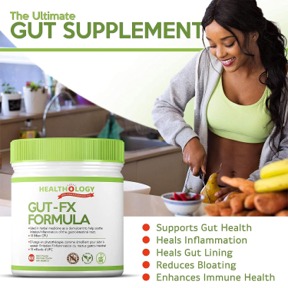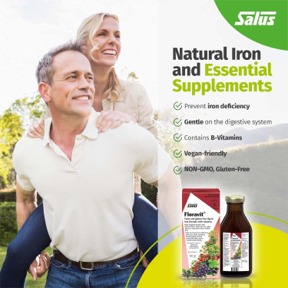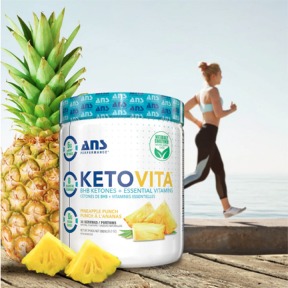What is the connection between low Iron and energy?

We do not often consider our iron levels responsible when we feel tired and weak or a little out of breath upon exertion. However, this mineral can sometimes be the root cause of some unexplained symptoms, especially fatigue. Women are more likely to be low in iron during their reproductive years but don't rule out an iron deficiency as the root cause of your low energy if you are older and of the opposite sex. An iron deficiency can affect men or women of any age.
Why is iron so essential for energy?
Iron is like a delivery truck that carries oxygen from our lungs to every cell in the body. Our cells then combine oxygen with sugars from our diets to produce a form of energy called ATP. Every action the body does, including moving muscles, thinking, making hormones, and digesting food, requires ATP. Iron deficiency is a rate-limiting step in producing ATP, meaning that low iron is the most likely culprit if we are not making enough ATP to meet energy demands.
When iron levels are lower, insufficient amounts of oxygen do not reach your tissues, muscles and organs, including your heart, causing your body to work twice as hard to perform its functions. The reduced oxygen causes you to feel tired, weak, faint, dizzy and short of breath. You may even get headaches or heart palpitations.
Your body also relies on a blood protein, "ferritin," to regulate your blood iron levels. Ferritin will help store iron in the blood and release iron if concentrations are low. Ferritin is also one of the key markers used in blood tests to determine how much iron your body stores and if you have an iron deficiency.
Iron Fact- Iron deficiency is the most common nutrient deficiency in the world. In Canada,
Iron Fact- Did you know your body can store iron for up to 3 years for men but only one year for women?
Your body continually loses iron through normal processes such as urination, defecation, sweating, and sloughing off skin cells. Conditions such as menstruation, pregnancy, cancer, surgery, bowel disorders (diverticulitis, polys, IBC, Crohn's, ulcerative colitis,) stomach disorders, and uterine fibroids may also affect your iron levels.
Some people likely to have low iron include vegans and vegetarians, women with heavy periods during pregnancy and breastfeeding and people taking acid-blocking medications for heartburn.
Signs of Symptoms of iron deficiency may include the following:
- Pale skin, especially under the eyes, nails and palms of hands
- Brittle hair
- Nails are thin, brittle, flattened and will become spoon-shaped if deficiency continues.
- Pale Mucus membranes, most noticeable when you pull down your lower eyelid
- Fatigue & weakness
- Shortness of breath during exertion
- Increased infections (colds and flu)
- Poor concentration
- Poor sleep
- Dizziness/faintness
- Sore tongue/canker sores
- Cold hands & feet
- Ringing in the head or ears
- Chest pain during exercise
- Headaches
- Restless leg syndrome
- Dry and dull hair
- Cracks at the corners of the mouth
Your body only stores approximately 25% of iron for future use, but even this level can lead to a depletion. The rest of your iron requirements must be obtained from your diet. Good dietary sources of iron include red meat, liver, egg yolk, beans, nuts, and fortified cereals.
How well your body absorbs iron depends on the iron source and how healthy your gut is (you need a healthy gut to absorb iron). Most iron supplements or OTC forms of iron use Ferrous Iron. But there are different forms of 'Ferrous Iron," and which one you choose sets the stage for unwanted side effects such as nausea, bloating, heartburn, abdominal pain, constipation, and black/tarry stools.
Constipation associated with taking some iron supplements is related to the imbalance of gut microbes caused by a particular form of iron. An imbalance in your gut microbes can slow down peristalsis (the movement of feces through the colon), which results in feces staying in the colon longer. This results in more water absorbed by the colon (causing dryer feces), resulting in constipation.
When choosing an iron supplement, we suggest you consider a natural iron supplement such as Floradix or Floravit Iron supplements by Salus. Salus liquid iron is a gentle, effective supplement that increases iron levels in the body by promoting the formation of healthy red blood cells. The iron used in Floradix Liquid Iron is called ferrous gluconate, which is effectively absorbed and gentle on our digestion and reduces the unwanted side effects.
Floradix Iron also contains vitamins B1, B2, B6 and B12. These vitamins work synergistically with iron to promote the formation of healthy red blood cells. In addition, B vitamins are essential for converting oxygen into energy once delivered to our cells.
Floradix Iron also contains a combination of nutrient-rich vegetables, fruits and herbs that have been carefully selected to improve the digestion and absorption of iron. The liquid form of Floradix makes it easy to adjust dosing and is more well-absorbed than pills or tablets. It is free from alcohol, lactose, and artificial additives and is vegetarian-friendly.
Optimal iron levels are essential for our overall wellness. If you are experiencing symptoms of low iron, especially fatigue, Floradix Liquid Iron by Salus is clinically proven to increase iron stores and boost energy.
Reclaim your energy












